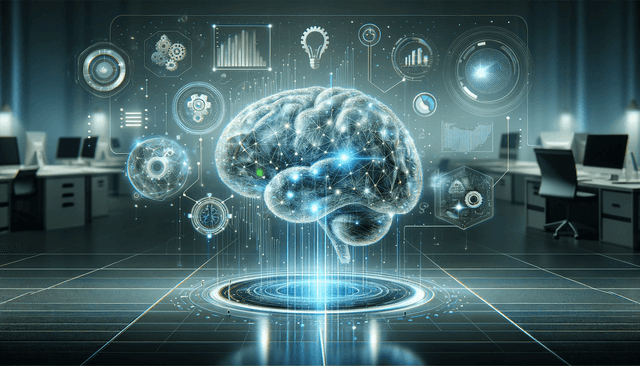Unlocking Potential: How to Leverage Artificial Intelligence in Your Strategy

Are you ready to propel your business into the future? Understanding how to leverage artificial intelligence (AI) can be the game-changer you need. AI is not just a buzzword—it’s a powerful tool that can drive innovation, streamline operations, and create unprecedented opportunities for growth. Whether you’re a tech-savvy entrepreneur or a business leader looking to stay ahead of the curve, this guide will show you how to harness the power of AI to elevate your strategies and gain a competitive edge. Get ready to dive into the world of artificial intelligence and transform the way you do business!
Table of Contents
Introduction
Imagine a future where your business decisions are enhanced by lightning-fast data analysis, customer interactions are personalized by intelligent algorithms, and mundane tasks are automated to perfection. This isn’t a far-off dream—it’s the reality of what how to leverage artificial intelligence can bring to your organization. AI is the frontier of business innovation, offering tools and insights that can transform operations, drive growth, and create a sustainable competitive advantage.“The potential for artificial intelligence in business is only limited by our imagination.” – AnonymousBut where do you begin? How do you ensure that your AI investments deliver real value? In this comprehensive guide, we’ll explore the steps you need to take to effectively integrate AI into your business strategy. From understanding the basics to measuring success, we’ll provide actionable insights and practical advice to help you navigate the AI landscape.
- Grasp the fundamentals of AI and its business applications.
- Identify opportunities for AI to make a real impact in your operations.
- Develop a robust AI strategy that aligns with your business goals.
Understanding Artificial Intelligence
Before you can start to reap the benefits of AI, it’s crucial to get a firm grasp on what it is and how it works. Artificial intelligence, at its core, is the simulation of human intelligence processes by machines, especially computer systems. These processes include learning, reasoning, and self-correction. The term ‘AI’ might conjure images of sci-fi robots, but in reality, it’s much more practical and accessible.Types of AI
Diving deeper, AI can be categorized into two main types:- Narrow AI: This type of AI is designed to perform a narrow task (e.g., facial recognition, internet searches, or driving a car). It’s the most common form of AI in use today.
- General AI: An AI that has a wider range of abilities that are more akin to human capabilities. This type of AI can theoretically perform any intellectual task that a human being can.
Key Components of AI
At the heart of AI are several key components:| Component | Description |
|---|---|
| Machine Learning | Algorithms that enable software to become more accurate in predicting outcomes without being explicitly programmed to do so. |
| Natural Language Processing | The ability of computers to understand and interpret human language the way it is spoken or written. |
| Robotics | Machines capable of carrying out a complex series of actions automatically, especially programmable by a computer. |
Ai content
This article was generated by Skelet AI
2000+ words in under 10 seconds, costing on average $0.05 per article.*
Ai content
AI-Powered Visuals
Skelet AI HD images effortlessly generated with easy prompts